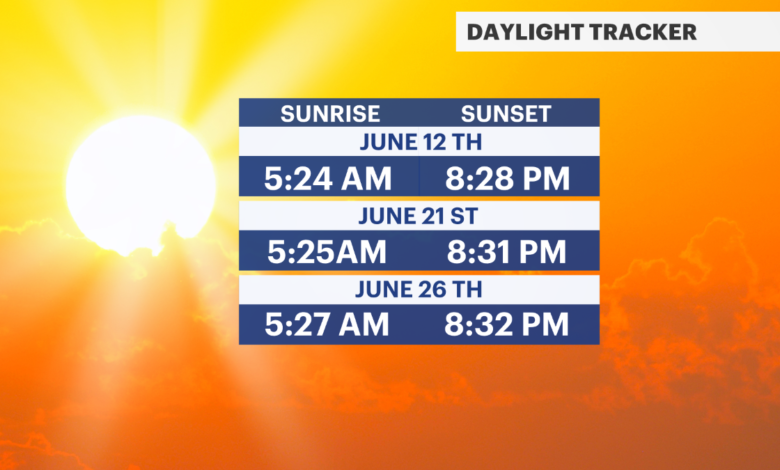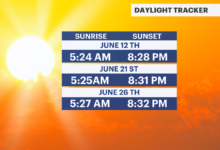What Time Is Sunset: Everything You Need To Know

Discover what time is sunset around the world, how it changes daily, and why it matters for culture, science, and daily life. A complete guide written simply but with expert insights.
Introduction: Why Sunset Captures Our Curiosity
When someone asks, what time is sunset, the question may sound simple, but the answer is much deeper than just checking a clock. Sunset is more than the end of daylight; it marks a transition in nature, culture, and even personal mood. Whether you are planning a romantic evening, organizing photography, or simply want to know when the day fades into night, understanding sunset is essential.
The exact moment of sunset is influenced by countless factors—geography, seasons, and even the tilt of the Earth. It is fascinating how this everyday phenomenon carries scientific accuracy and at the same time holds spiritual, cultural, and emotional weight. That’s why learning about what time is sunset is not just about timekeeping, but about appreciating the rhythms of life itself.
The Meaning Behind Sunset
When we talk about sunset, we often think about the beautiful colors streaking across the sky. Scientifically, sunset is the exact moment the upper edge of the sun disappears below the horizon. It is precise, yet to the human eye, it feels like an artistic performance that can last for several minutes.
But sunset is not only a natural event; it has layers of meaning in different cultures. In many traditions, sunset is the time of prayer, reflection, and closure. Farmers historically relied on it to structure daily tasks, while travelers used it as a natural signal of when to stop their journeys. Asking what time is sunset has always been a part of human survival and cultural rhythm.
Why Sunset Time Changes Every Day
The first thing to know is that sunset does not occur at the same time every day. The Earth is tilted on its axis and follows an elliptical orbit around the sun. Because of this, the amount of daylight we experience changes daily. This is why what time is sunset in summer is dramatically different from what it is in winter.
For example, in mid-June, people living in higher latitudes enjoy longer daylight hours, with sunsets stretching late into the evening. Meanwhile, in December, those same locations experience early sunsets that arrive before dinner. The difference can be several hours depending on where you are in the world.
The Role of Geography in Sunset
Location plays the most significant role in answering what time is sunset. If you live close to the equator, you will notice that sunset times are fairly consistent throughout the year. The difference between summer and winter is small, usually less than an hour.
On the other hand, if you are in a northern or southern latitude, the changes are extreme. In some places, the sun might set as late as midnight or not at all for a period during summer, leading to phenomena like the “midnight sun.” In contrast, winters bring long periods where daylight seems to vanish quickly, creating very early sunsets.
Sunset Through the Seasons
Every season has its own unique relationship with sunset. During spring, the days gradually lengthen, and the evening light feels refreshing after months of early darkness. Summer brings those golden evenings where the sky seems to glow for hours.
Autumn sunsets have their charm too, often producing some of the most vibrant skies due to clearer air and changing atmospheric conditions. Winter, while short on daylight, creates sunsets that arrive early but often paint the sky in dramatic pinks and purples. No matter the time of year, what time is sunset can change your daily routine and even influence your mood.
How to Find Out What Time Is Sunset Today
While in the past people observed shadows, stars, or the position of the sun itself, today we have endless resources to answer the question instantly. Smartphone apps, weather websites, and even smart home assistants can tell you the exact time of sunset for your location.
Still, many enjoy a more natural method—simply watching the sky. The gradual dimming of light, the lengthening of shadows, and the cooling air all signal that sunset is approaching. Whichever method you prefer, the experience of waiting for sunset adds a sense of connection to the day.
Sunset and Daily Human Life
You may not realize it, but the timing of sunset shapes many aspects of daily living. For instance, in cities, traffic patterns often spike right after sunset as people return home. In rural areas, farming activities often slow down around sunset, marking a natural pause in work.
Cultural activities also revolve around what time is sunset. Religious practices such as evening prayers or fasting often depend on this precise time. Even social life—from dining outdoors to concerts or sporting events—uses sunset as a natural marker for when to begin.
Sunset in Science and Nature

From a scientific perspective, sunset is not just about time. It is about light, atmosphere, and energy. As the sun lowers, its rays travel through a thicker part of the atmosphere, scattering shorter wavelengths like blue and green, leaving behind longer wavelengths like red, orange, and pink. That is why sunsets look so colorful.
Nature responds to sunset in incredible ways. Birds quiet down, nocturnal animals prepare to emerge, and plants may begin subtle changes like closing flowers. For both humans and wildlife, what time is sunset is a signal to adjust to the changing environment.
Sunset Around the World
One of the most fascinating things about sunset is how it varies across the globe. In places like Norway or Alaska, summer sunsets can stretch on endlessly, while in tropical destinations, sunset is quick and predictable year-round.
Tourist destinations often advertise sunset spots—beaches, cliffs, or desert dunes—where people gather just to witness this natural event. The timing may differ, but the shared human joy in watching the sunset unites people everywhere.
Table: Example Sunset Times in Different Cities
| City | Approximate Earliest Sunset | Approximate Latest Sunset |
|---|---|---|
| New York | 4:30 PM (December) | 8:30 PM (June) |
| London | 3:50 PM (December) | 9:20 PM (June) |
| Tokyo | 4:30 PM (December) | 7:00 PM (June) |
| Sydney | 5:00 PM (June) | 8:00 PM (December) |
| Nairobi | 6:30 PM (Year-round) | 6:45 PM (Year-round) |
This table highlights how dramatically sunset times can vary depending on where you are in the world.
Quotes About Sunset
“Sunset is the opening music of the night.” – Mehmet Murat Ildan
“Every sunset brings the promise of a new dawn.” – Ralph Waldo Emerson
These quotes remind us that sunset is not just a scientific event but an emotional and spiritual experience.
Frequently Asked Questions About Sunset
Q: Why do people ask what time is sunset so often?
A: Because sunset determines everything from prayer schedules and photography plans to outdoor events, it is a daily reference point for millions of people worldwide.
Q: Does sunset happen at the same time everywhere?
A: No, it varies greatly depending on latitude, season, and location. Near the equator, it is more consistent, while at higher latitudes, the change is dramatic.
Q: Why are sunsets more colorful than sunrises?
A: Both can be equally colorful, but during sunset, the atmosphere usually has more particles like dust and pollution, which enhance the scattering effect, producing more vivid colors.
Q: Can two places at the same longitude have different sunset times?
A: Yes, because local terrain, time zones, and latitude all influence what time is sunset even if locations share the same longitude.
Q: How long does sunset last?
A: The transition from day to night is gradual, but the sun itself usually disappears in just a few minutes. However, twilight, the lingering light after sunset, can last up to an hour depending on the season and location.
Conclusion
Asking what time is sunset is more than a practical question—it is an invitation to notice the rhythms of the Earth. From science to culture, from personal reflection to global travel, sunset is a reminder that every day has a natural beginning and end. The next time you look up at the sky and wonder about the time of sunset, you’ll know it’s not just about the clock—it’s about appreciating a daily masterpiece.

